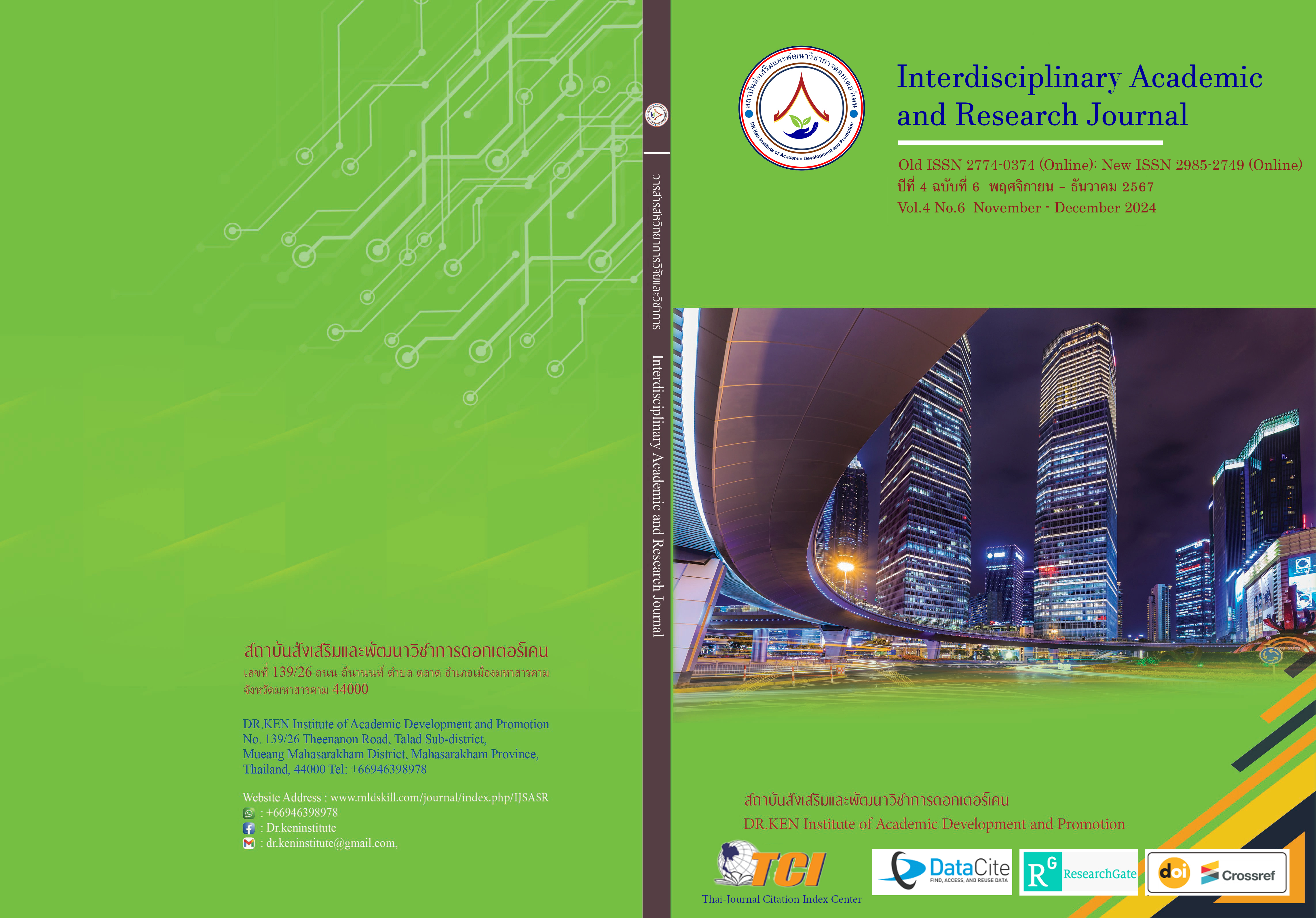The Concept of Restoring Learning Loss in the Digital Age
DOI:
https://doi.org/10.60027/iarj.2024.278854Keywords:
Restoring, Learning, DigitalAbstract
Background and Aims: The integration of digital technology into education necessitates the creation of strategies and methods to effectively address and mitigate the impact of learning loss in the digital era. Therefore, this study aims to study the concept of reviving the learning recession in the digital age.
Methodology: In this study, academic documents are analyzed, goals are set in accordance with learning objectives, content analysis techniques are applied, and descriptive data is presented.
Results: Employing learning theories that emphasize engagement and experiential learning, remediation efforts focus on evaluating students' learning outcomes to identify their individual needs and tailor curricula to their abilities and interests. The use of digital tools such as online learning, digital teaching platforms, and artificial intelligence applications facilitates the creation of flexible and effective learning environments. Enhancing the technological skills of teachers and educational staff is also a critical strategy for improving teaching effectiveness in the digital age. Furthermore, providing psychological and social support to students is crucial for boosting their motivation to learn. Equally important is the development of life skills and social skills needed for living in the digital era. Creating varied learning environments and encouraging the involvement of parents and communities can further promote effective learning.
Conclusion: In conclusion, addressing learning loss in the digital age requires the application of appropriate learning and teaching theories, the utilization of technology, and support from all stakeholders to ensure students receive a quality education and develop the skills necessary to thrive in the digital era.
References
กิตติภัค อนันต์ปัญญา. (2564). การพัฒนาการเรียนรู้แบบอัตลักษณ์โดยใช้แอพพลิเคชั่นสร้างแบบทดสอบแบบสอบถาม. วารสารเทคโนโลยีสารสนเทศและการสื่อสาร, 11(2), 45-55.
จุฑามาศ บุญเรือง. (2562). การใช้เทคโนโลยีสารสนเทศเพื่อส่งเสริมการมีส่วนร่วมและความคิดสร้างสรรค์ของนักเรียนชั้นมัธยมศึกษาตอนต้นในชั้นเรียนภาษาไทย. มหาวิทยาลัยราชภัฏวไลยอลงกรณ์ ในพระบรมราชูปถัมภ์.
จุฑารัตน์ พิมพ์ไทยสง. (2560). การพัฒนาการจัดการเรียนรู้การอ่านภาษาอังกฤษเพื่อความเข้าใจตามแนวทฤษฎีคอนสตรัคติวิสต์สำหรับนักเรียนชั้นมัธยมศึกษาปีที่ 3. มหาวิทยาลัยมหาสารคาม.
ชาญชัย เทพหัสดิน. (2561). การนำเทคโนโลยีดิจิทัลเข้าสู่การสอนเพื่อพัฒนาการคิดเชิงสร้างสรรค์ของนักเรียน. วารสารวิทยาการคอมพิวเตอร์และเทคโนโลยีสารสนเทศ, 3(2), 56-69.
ณัฐพร พัฒนากุล .(2564). แนวทางการฟื้นฟูผลกระทบทางการศึกษาจากสถานการณ์การแพร่ระบาดของ COVID-19 ของโรงเรียนมัธยมศึกษาในสังกัดสำนักงานคณะกรรมการการศึกษาขั้นพื้นฐาน. มหาวิทยาลัยราชภัฏนครปฐม.
ธีรวัฒน์ รัตนกุล. (2564). การส่งเสริมการเรียนรู้แบบเชิงกิจกรรมผ่านแพลตฟอร์มการเรียนรู้ออนไลน์. วารสารเทคโนโลยีการศึกษา, 5(1), 12-24.
นงลักษณ์ บุญมี .(2562). การส่งเสริมการเรียนรู้เชิงบวกผ่านกิจกรรมการเรียนรู้แบบบูรณาการในชั้นเรียนประถมศึกษาปีที่ 6. มหาวิทยาลัยราชภัฏกำแพงเพชร.
รัชพล ธนาวุฒิธรรม.(2565). เอกสารฉบับนี้เสนอแนวทางการออกแบบบทเรียนแบบผสมผสาน (Blended Learning). กรุงเทพฯ: สำนักพิมพ์นายอินทร์.
สำนักงานเลขาธิการสภาการศึกษา (2565). เอกสารฉบับนี้ศึกษาวิเคราะห์ผลกระทบของโควิด-19 ต่อการเรียนรู้ของนักเรียนระดับการศึกษาขั้นพื้นฐาน พบภาวะถดถอยการเรียนรู้ในหลายวิชา โดยเฉพาะกลุ่มนักเรียนชั้นประถมศึกษาปีที่ 1-3. เอกสารนำเสนอแนะแนวทางการแก้ไขและพัฒนาคุณภาพการเรียนรู้. เว็บไซต์สถาบันส่งเสริมการวิจัยเพื่อพัฒนาระบบการศึกษา (สสวร.): http://www.ska2.go.th/reis/
สุรัตน์ รุ่งนิรันดร์. (2564). ผลของการใช้เทคโนโลยีการสื่อสารสังคมในการเรียนรู้และการสอนในสถานการณ์โควิด-19 ต่อพฤติกรรมการเรียนรู้ของนักเรียน. มหาวิทยาลัยสุโขทัยธรรมาธิราชินี.
สุรีย์ ทับทิม .(2564). การศึกษาประสิทธิภาพของโมเดลการจัดการชั้นเรียนแบบผสมผสานที่ใช้เทคโนโลยีสารสนเทศและการสื่อสารต่อผลการเรียนรู้และเจตคติของนักเรียนชั้นประถมศึกษาปีที่ 6. มหาวิทยาลัยราชภัฏเชียงใหม่.
Downloads
Published
How to Cite
Issue
Section
License
Copyright (c) 2024 Interdisciplinary Academic and Research Journal

This work is licensed under a Creative Commons Attribution-NonCommercial-NoDerivatives 4.0 International License.
Copyright on any article in the Interdisciplinary Academic and Research Journal is retained by the author(s) under the under the Creative Commons Attribution-NonCommercial-NoDerivatives 4.0 International License. Permission to use text, content, images, etc. of publication. Any user to read, download, copy, distribute, print, search, or link to the full texts of articles, crawl them for indexing, pass them as data to software, or use them for any other lawful purpose. But do not use it for commercial use or with the intent to benefit any business.
















.png)


